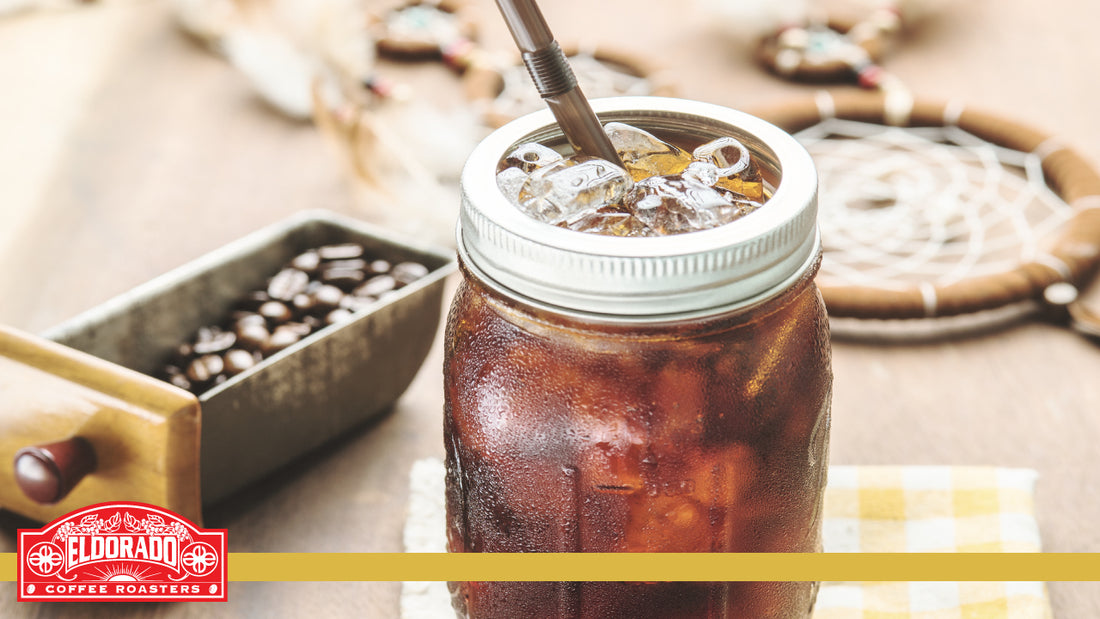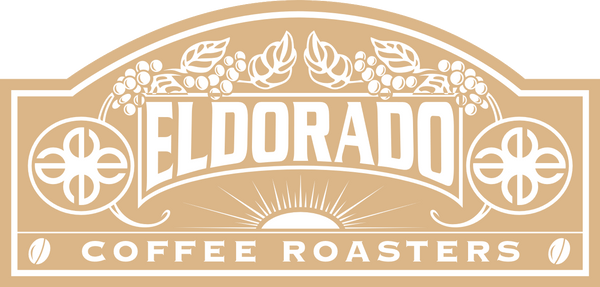
A Brief History of Cold Brew Coffee
Share
It’s been about ten years since the cold brew coffee craze reached our stores and refreshed our summers. Today, small cartons of cold brew coffee are sold in supermarkets and chain stores globally. Although new technologies have developed a more efficient process and a tastier product, crafting cold brew coffee is not a new concept. In fact, cold brew coffee has been around for generations!
Before we look into its history, what exactly is cold brew coffee?

The process of making cold brew coffee is unique-- and not to be confused with iced coffee, which is simply regular coffee served over ice. What makes cold brew coffee so delicious is the amount of time it takes to brew. Coarse ground coffee, such as our Colombian Dark Roast, is steeped in cold water; it is left here for as long as possible, with a minimum steep time of 12 hours. The grounds are then filtered out, leaving a concentrate which can be served in various ways. What makes cold brew coffee special is the flavor profile which results from allowing the coffee to brew for so long: the oils, sugar, and caffeine are chemically extracted in a distinctive way. Despite the differences in how it is made, cold brew maintains all of the standard benefits of regular coffee.
Since cold brew coffee is often confused with iced coffee by those who do not understand the process, there has been some confusion in regards to the drink’s true origins.
Now, cold brew coffee is taking over the world! In 2017, the US revealed its annual cold brew coffee growth figures to be at a staggering +370%. Producing coffee in this innovative format is a great way to enjoy the benefits of drinking coffee in warm weather; it is a great alternative to iced coffee, which is often unhealthy due to being packed with sugar.
Are you curious about this trending drink? We’ve outlined a brief history of cold brew coffee-- real cold brew coffee!-- to better understand where this “new” phenomenon began.
Is it Dutch or Japanese?
There is some debate as to whether the specific methodology of cold brew coffee was developed by the Dutch or the Japanese.
The earliest documented record of cold brew coffee is called “Kyoto”, which originated in Japan during the 1600s. This type of coffee earned its name due to the popularity of the drink in the city of Kyoto. The Japanese would brew cold coffee for hours, extracting every flavor from the bean; they even invented elegant machines to brew the coffee in public spaces. They would let each bead of water drip down the tower and pass through the coffee grounds, creating a public spectacle out of the mystery and wonder surrounding the cold brew process. Although this is the first evidence of cold brew coffee, it is unknown whether this drink and methodology existed previously. Some people believe the process may have been introduced to Japan by Dutch traders from Indonesia. It is argued that it could have been developed for the purpose of transporting large quantities of strong coffee which later could be reheated or served cold.
Although the coffee-concentrate idea was certainly brought to popularity in Japan at this time, we still can not determine whether or not the process already existed.
Cold brew coffee, whatever it’s precise origins, seemed to be a natural development in the history of brewing coffee. Cold brew, along with having a more complex flavor profile, is convenient; its strong concentrate can be diluted for ready-made coffee, and thus can be utilized on long journeys. For these reasons, there are many documented instances of cold brew coffee being used as war rations.
Eventually, Japanese-style cold brew coffee spread around the world through different trade routes and cultural exchanges, eventually growing into the cold brew coffee’s popularity today.
Modern cold brew coffee
Cold brew coffee has received far more publicity within the last few years. Its entrance onto the menus of coffee shops globally has piqued the interest of innumerable coffee drinkers. People view cold brew coffee either as the rediscovery of a historic process or as an invention of modern technology.
The fact is that both perceptions are true!
Like so many other coffee trends, the methodology, techniques, and concept of cold brew traveled the world; it has also been met with a technological reimagining of the traditions to bring the product to market, especially in America.
Why has it become so popular in the last few years?

One reason for cold brew’s new popularity is that new technologies and machines have emerged to bring the cold brew coffee to market. It’s the new fashionable drink-- and who doesn’t want to try a trending way to drink coffee?
Flavor has also played a large role in cold brew coffee’s attention. As we mentioned before, cold brew coffee has a totally different flavor profile compared to regularly brewed coffee. The end product that you get from the same beans is diametrically different.
Another reason for cold brew coffee’s popularity could be ease. Just by setting up the coffee and cold water, we can receive all the benefits of drinking coffee with almost zero effort! This potentially has led to more coffee shops deciding to serve cold brew coffee. It’s an easy, quick way to serve a customer and keep your labor costs down. Ease has also led to the trend of at-home cold brew coffee machines. Although there are many different ways you can make coffee at home, and there are coffee makers for all lifestyles. Who wouldn’t want a chilled jug of coffee waiting for them in the fridge?
Coffee has become an art form in many countries all over the world. With competitions declaring the best baristas, popularized latte art, and studies surrounding coffee, many people have come to see coffee as its own art form. Cold brew coffee’s unique methodology and historical origins embody coffee artistry.
Seeing as cold brew coffee has a long and interesting history, it’s exciting that the drink has enraptured consumers. As another form of brewing, it’s a tool that can be used to add to the artistry of coffee-making, further developing the culture and business of the coffee industry. Who knows what techniques and new technologies will emerge to develop and redefine what we know as cold brew coffee?
We at El Dorado adore all forms of coffee; we can’t wait to see what new products and techniques emerge out of this trend, and how they might change the world of coffee as we know it!
